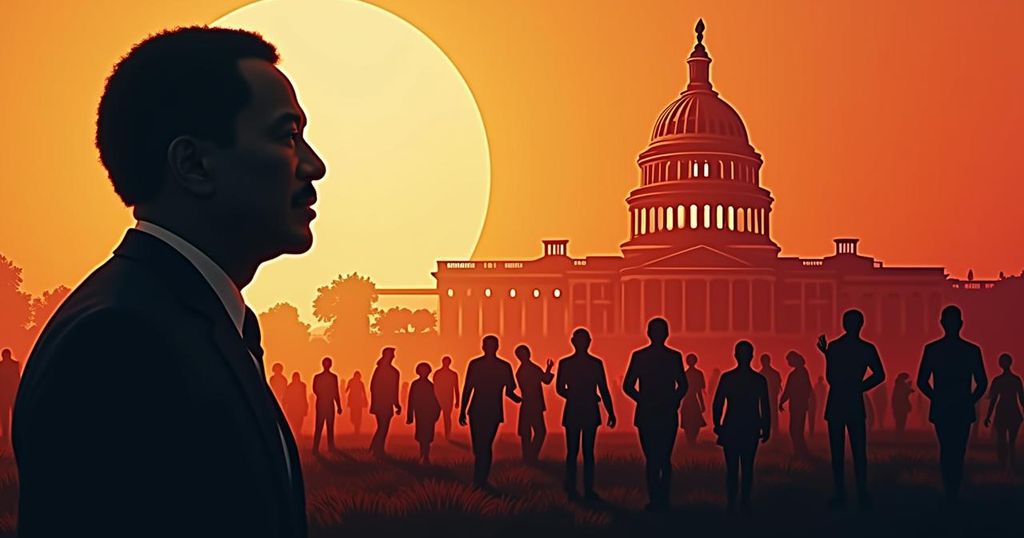Jimmy Carter’s presidency fundamentally transformed American political practices, particularly with respect to presidential nominations and campaigning. As an early anti-establishment candidate, he adopted modern campaign strategies effectively, influencing his successors. Despite facing significant challenges, many issues during his administration continue to resonate in today’s political landscape. Carter’s work post-presidency has further solidified his legacy, marking him as a model for future former presidents as the upcoming 2024 campaigns evoke his historical narrative.
Former President Jimmy Carter, now celebrating his 100th birthday, has left an enduring impact on American politics, particularly evident as the nation approaches the 2024 elections. Carter emerged as an influential political figure post-Vietnam and post-Watergate, changing the landscape of presidential nominations through his effective use of primaries, caucuses, and debates. His presidency marked a shift towards the modern notion of an “outsider” candidate, a model that has influenced almost all subsequent presidents to varying degrees. Despite serving a single term, Carter navigated numerous persistent issues that remain relevant today, such as inflation, climate policy, energy production, healthcare, and Middle Eastern dynamics, notably the Iran crisis. His legislative struggles, including conflicts with his party’s leadership and a formidable primary challenge from Senator Edward Kennedy, showcased both his principled approach and the political consequences of his outsider status. Historically significant, Carter’s initiative in the 1976 primaries revolutionized candidate selection, prioritizing grassroots support over party establishment control. His inaugural campaign cemented the importance of primary debates—a practice that has continued to be pivotal in American electoral politics. Historically, Carter’s outsider narrative influenced future candidates across the spectrum, setting a trend that has continued to resonate. Carter’s presidency also highlighted the challenges of leading amidst bipartisanship strife, reflecting on his gains and losses against an entrenched establishment. His subsequent post-presidency has been characterized by humanitarian efforts, bolstering his legacy as a model for former presidents. As the current political landscape unfolds, discussions surrounding Carter and his era have become part of contemporary political discourse, particularly as the 2024 campaign cycle gains momentum.
Jimmy Carter’s presidency, spanning from 1977 to 1981, represents a significant turning point in American political history, particularly in response to the societal upheavals of the 1960s and 1970s. During his tenure, the structure of presidential nominations transitioned toward a primary system, a change that Carter fully utilized, allowing individuals outside the established political framework to compete effectively for presidential nominations. This marked a departure from older processes where party elites wielded substantial control over the nomination habits. Carter’s tenure grappled with complex challenges that remain pertinent today, including economic strife known as stagflation and diplomatic tensions with Iran. His post-presidential work has helped sustain his legacy through humanitarian contributions and critiques of subsequent administrations, illustrating the often complex relationship between political leadership and public service.
In conclusion, Jimmy Carter’s presidency significantly altered the trajectory of American political dynamics, shaping the manner in which future leaders engage with the electorate and approach legislative agendas. His emphasis on the outsider narrative has influenced the subsequent generations of politicians who seek to distance themselves from the political establishment. Additionally, the enduring issues that marked his presidency continue to reverberate in contemporary politics, signifying Carter’s lasting influence as the nation heads into the 2024 elections. Not only has his lifetime of public service shaped modern presidential campaigns, but it also serves as a profound reminder of the intricate interplay between personal conviction and political success.
Original Source: www.usatoday.com






